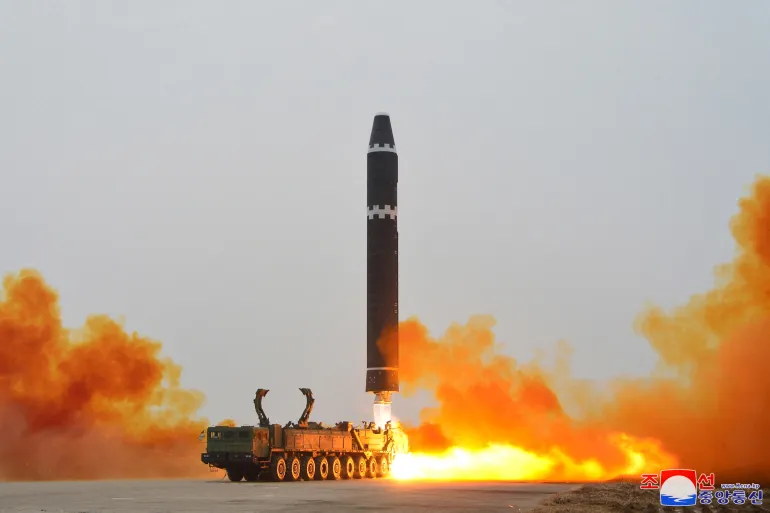North Korea has confirmed the successful test of a new intercontinental ballistic missile (ICBM), following a series of military escalations. The launch occurred during a time of heightened scrutiny from global powers, particularly after reports of North Korean troops moving towards Ukraine to assist Russian forces.
The missile launch was conducted under the orders of leader Kim Jong Un, with North Korea’s state media claiming that this test marks a significant advancement in their military capabilities. The missile reportedly achieved a flight duration of 86 minutes and reached an altitude of over 7,000 kilometers (4,350 miles), positioning it as potentially more advanced than previous models.
This incident comes after a violent period involving the deaths of at least two Iranian soldiers from Israeli strikes, which led to warnings of retaliation from Tehran. The U.S. and its allies have expressed concerns over North Korea’s growing missile technology and its implications for regional security.
During the test announcement, Kim emphasized the need for North Korea to enhance its defense against perceived threats from the U.S. and its allies, alleging interference in their sovereignty. He framed the missile launch as essential for national security amid what he characterized as provocation.
The situation has raised alarms in Washington, where officials warned that a successful ICBM test by North Korea could embolden the regime further. U.S. Secretary of State Antony Blinken reiterated the importance of international cooperation in addressing the threats posed by North Korea’s military advancements.
In light of these developments, military analysts are closely monitoring North Korea’s movements, as they navigate complex geopolitical tensions in the region. The prospect of an intensified arms race looms large, with neighboring nations on high alert for future provocations.
Credit: ABC News




